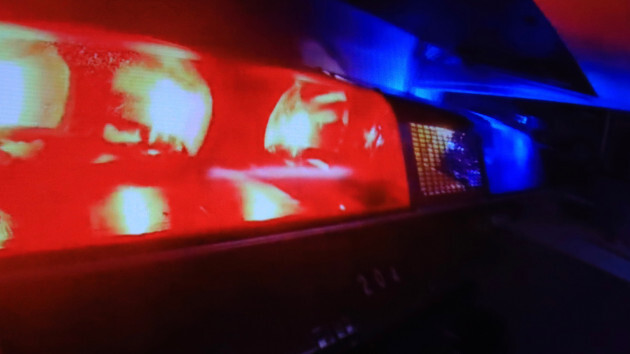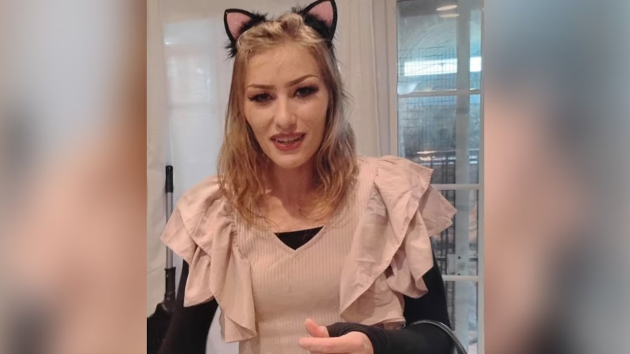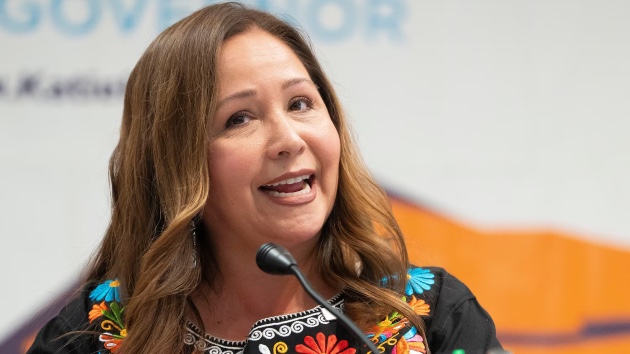‘No end in sight’: Massachusetts hospital flooded with patients amidst COVID surge
Written by luck on December 9, 2021
(WORCESTER, Mass.) — Despite having one of the nation’s highest vaccination rates, Massachusetts is in the midst of a full coronavirus resurgence. The state’s daily case average is now at its highest point in nearly a year, and in the last month alone, new hospital admissions have more than doubled.
In central Massachusetts, the UMass Memorial Health System is, once again, completely overwhelmed with COVID-19 patients.
“We, right now, have more patients in the hospital, overall, than we have had at either of the two peaks previously. You come in one day and you say this is the worst we’ve ever seen it and you come back the next day and it’s even worse. This is very concerning, what’s going on right now,” UMass Memorial Health Care President and CEO Dr. Eric Dickson told during an interview ABC News Wednesday.
According to Dickson, many of the hospitals in the UMass Memorial health care system are currently at-capacity.
At UMass Memorial Medical Center, all 450 beds, which are typically available, are full. There are 75 patients waiting in the ER for a bed, including seven ICU patients.
“We’re running at more than 120% of capacity right now,” Dickson said. “There’s really no end in sight, which is the scary part for all of us.”
The health system’s latest surge is the result of the delta variant, said Dickson, who added that although the health system is actively sequencing patients, the omicron variant has yet to be detected in the patient population.
On top of the “intense pressure” and significant increase in COVID-19 patients overwhelming health care workers, hospitals are also seeing an increase in winter trauma-related incidents, such as slips, heart attacks and strokes.
“It’s really the perfect storm for a bed crisis,” Dickson added.
A strike among workers, in one of the hospitals in Worcester, has forced 100 beds offline, thus further reducing hospital capacity, while staffing shortages have greatly exacerbated the health care system’s struggle.
“You can’t imagine how exhausted caregivers are right now,” Dickson said. “The biggest challenge for us right now is that our people are extremely, extremely fatigued. This is their third surge over the course of about 20 months, and that’s really taking a toll on them.”
In addition, compounding its woes, UMass Memorial Health was forced to fire 200 employees last week after they refused to get vaccinated.
“We’ve got a problem getting patients out of the hospital, because there’s no staff in the nursing homes and they’re dealing with shortages,” Dickson said.
Dickson explained that he is greatly concerned by the fact that a state like Massachusetts, with more than 72% of its total population fully vaccinated, could be experiencing such a significant surge.
“This pandemic is clearly not over,” Dickson said. “This is really the toughest period of this whole pandemic right now for some of us,” adding that he was “extremely concerned” about the health system capacity to handle potential increases in people needing care, over the next several weeks and months.
The rest of the upcoming winter holidays also continue to be a major source of concern for Dickson and his teams, who saw a “big bump” in test positive cases and hospitalizations following Thanksgiving.
“Now you have a higher starting point, and you’re going to add Christmas and New Year’s on top of that. It really could get bad into mid January, and that’s what we’re most concerned about. We’re holding on right now, today. But if this keeps on going up for the next five, six weeks, I’m not quite sure where we’re going to get everyone in,” he said.
Although the majority — between 60 and 75% — of patients currently under care are unvaccinated, hospital officials have seen the impact of waning immunity over time.
“We even have some breakthrough cases of people that have received the booster, so there’s definitely a waning of the immunity over time, but it’s still your best protection is getting your COVID vaccine and then getting a booster,” Dickson said.
Ultimately, it is critical for all residents to do their best to slow the rise in infections by getting vaccinated and boosted, and by following important mitigation strategies to control the spread, Dickson said.
Copyright © 2021, ABC Audio. All rights reserved.





